"While dictators rage and statesmen talk, all Europe dances — to The Lambeth Walk."
Thursday, 9 April 2009
New Revelations of KLA Atrocities in Kosovo
The BBC has released the findings from a report it conducted into civilian casualties and mistreatment in Kosovo, both before and after the conflict.
It confirms claims that the KLA, a violent, criminally backed terrorist organisation, abducted, severely mistreated and in many cases killed ordinary civilians.
Both Serbs and Roma were ethnically cleansed from certain areas, and ethnic Albanian political rivals were also tortured and killed.
Many of the abuses inflicted on non-Muslims and non-Albanians by the KLA are virtually unheard of in the West - during the 1999 Kosovo War a careful black and white image of the 'bad Serbs' and 'good Kosovars' was constructed by the media.
Some reports suggest that the Western media was more biased and centrally controlled than that coming out of Belgrade, because the reporters had to embed themselves with NATO and do as they were told in order to remain.
Here's what the BBC found:
The Kosovo Liberation Army (KLA) abducted civilians in Kosovo who were then mistreated and in some cases killed, a BBC investigation has found.
Sources told the BBC that Kosovo Serbs, ethnic Albanians and gypsies were among an estimated 2,000 who went missing.
This took place both during and after the war in Kosovo, which ended in June 1999.
Kosovo Prime Minister Hashim Thaci, the former KLA political director, has rejected the allegations.
Mr Thaci said he was aware that individuals had "abused KLA uniforms" after the war, but said the KLA had distanced itself from such acts.
He added that such abuse was "minimal".
Predictable. The witness testimonies, including those from Albanians, contradict him:
The BBC News investigation also studies claims that some of those held in Albania were killed for their organs, and that physical evidence gathered by UN investigators in Albania was destroyed by the International War Crimes Tribunal.
A former prisoner of the KLA, an ethnic Albanian from Kosovo who was held in a KLA prison in Kukes, northern Albania, agreed to speak to us on condition of anonymity. His family are terrified for his life.
"They ill-treated people in the corridor," he says. "They also came into the rooms in groups of five or six to question us. And they used knives, guns, and automatic rifles."
His testimony confirms that people of different ethnic backgrounds were kept there, including Serbs.
He told the BBC: "When a person is mistreated... he cries out 'oh mother' in his own language.
"The nights were very quiet, so you could hear them crying out... while they were being beaten, or afterwards."
Sources in Kukes suggest that up to 18 prisoners held at the camp were killed.
Just across the border, in Prizren, in western Kosovo, Brankica Antic lights a candle for her husband Zlatko.
A Kosovo Serb, she says he was abducted in July 1999 in Prizren by men in KLA uniforms - six weeks after the end of the war, when Nato-led peacekeepers were well established.
At the Monastery of the Holy Archangel near Prizren, candles are lit for loved ones according to the Serbian Orthodox tradition.
Candles are lit either on the top shelf for the living, or the lower, for the dead. Brankica still lights her candles for Zlatko on the top.
"We always light candles for their health and well-being, and we will continue to do so unless and until their bodies are found, and we know for a fact that they are gone," she says.
Zlatko is one of about 400 Kosovo Serbs who were abducted at the end of the war, and are still missing, according to Family Associations of the Missing in Serbia.
Around 150 are still missing from the war period.
A further 1,500 Kosovo Albanians are still missing from wartime, when Serb security forces carried out many, well-documented atrocities against the majority Albanian population.
Hundreds of bodies were found in mass graves in Serbia. Our investigation shows that KLA fighters, too, were guilty of serious human rights abuses.
That's right, who would have thought that a violent terrorist group like the KLA, backed by gangsters and drug money, would do such a thing?
Many commentators have been highlighting these allegations for a long time, but finally, after ten years, the BBC admits the truth - this conflict was far from black and white, and the good guys, the underdogs, actually turn out to be the villains after all.
I welcome this report, but much more needs to be done to highlight the current plight of ethnic Serbs in Kosovo, and work towards a solution which sees at least the Serb-majority areas become part of Serbia.
It confirms claims that the KLA, a violent, criminally backed terrorist organisation, abducted, severely mistreated and in many cases killed ordinary civilians.
Both Serbs and Roma were ethnically cleansed from certain areas, and ethnic Albanian political rivals were also tortured and killed.
Many of the abuses inflicted on non-Muslims and non-Albanians by the KLA are virtually unheard of in the West - during the 1999 Kosovo War a careful black and white image of the 'bad Serbs' and 'good Kosovars' was constructed by the media.
Some reports suggest that the Western media was more biased and centrally controlled than that coming out of Belgrade, because the reporters had to embed themselves with NATO and do as they were told in order to remain.
Here's what the BBC found:
The Kosovo Liberation Army (KLA) abducted civilians in Kosovo who were then mistreated and in some cases killed, a BBC investigation has found.
Sources told the BBC that Kosovo Serbs, ethnic Albanians and gypsies were among an estimated 2,000 who went missing.
This took place both during and after the war in Kosovo, which ended in June 1999.
Kosovo Prime Minister Hashim Thaci, the former KLA political director, has rejected the allegations.
Mr Thaci said he was aware that individuals had "abused KLA uniforms" after the war, but said the KLA had distanced itself from such acts.
He added that such abuse was "minimal".
Predictable. The witness testimonies, including those from Albanians, contradict him:
The BBC News investigation also studies claims that some of those held in Albania were killed for their organs, and that physical evidence gathered by UN investigators in Albania was destroyed by the International War Crimes Tribunal.
A former prisoner of the KLA, an ethnic Albanian from Kosovo who was held in a KLA prison in Kukes, northern Albania, agreed to speak to us on condition of anonymity. His family are terrified for his life.
"They ill-treated people in the corridor," he says. "They also came into the rooms in groups of five or six to question us. And they used knives, guns, and automatic rifles."
His testimony confirms that people of different ethnic backgrounds were kept there, including Serbs.
He told the BBC: "When a person is mistreated... he cries out 'oh mother' in his own language.
"The nights were very quiet, so you could hear them crying out... while they were being beaten, or afterwards."
Sources in Kukes suggest that up to 18 prisoners held at the camp were killed.
Just across the border, in Prizren, in western Kosovo, Brankica Antic lights a candle for her husband Zlatko.
A Kosovo Serb, she says he was abducted in July 1999 in Prizren by men in KLA uniforms - six weeks after the end of the war, when Nato-led peacekeepers were well established.
At the Monastery of the Holy Archangel near Prizren, candles are lit for loved ones according to the Serbian Orthodox tradition.
Candles are lit either on the top shelf for the living, or the lower, for the dead. Brankica still lights her candles for Zlatko on the top.
"We always light candles for their health and well-being, and we will continue to do so unless and until their bodies are found, and we know for a fact that they are gone," she says.
Zlatko is one of about 400 Kosovo Serbs who were abducted at the end of the war, and are still missing, according to Family Associations of the Missing in Serbia.
Around 150 are still missing from the war period.
A further 1,500 Kosovo Albanians are still missing from wartime, when Serb security forces carried out many, well-documented atrocities against the majority Albanian population.
Hundreds of bodies were found in mass graves in Serbia. Our investigation shows that KLA fighters, too, were guilty of serious human rights abuses.
That's right, who would have thought that a violent terrorist group like the KLA, backed by gangsters and drug money, would do such a thing?
Many commentators have been highlighting these allegations for a long time, but finally, after ten years, the BBC admits the truth - this conflict was far from black and white, and the good guys, the underdogs, actually turn out to be the villains after all.
I welcome this report, but much more needs to be done to highlight the current plight of ethnic Serbs in Kosovo, and work towards a solution which sees at least the Serb-majority areas become part of Serbia.
Labels:
Albania,
Ethnic Cleansing,
KLA,
Kosovo War,
War Crimes
Subscribe to:
Post Comments (Atom)
.jpg)





















































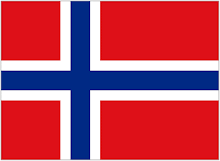
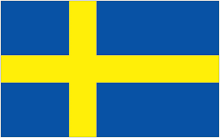






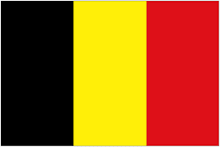

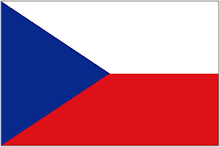











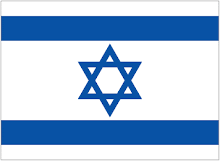




No comments:
Post a Comment